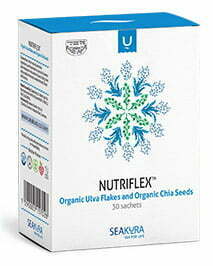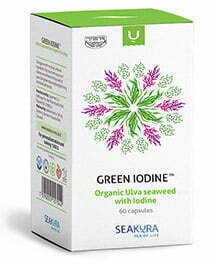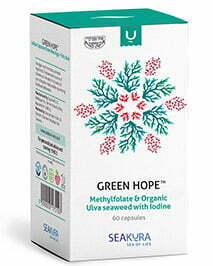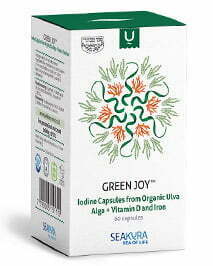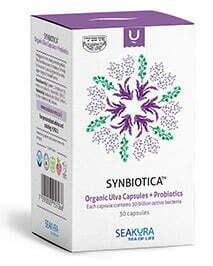




CHOOSE YOUR CONTENT
Omega 3 and Attention Deficit Disorder
Attention deficit disorder (ADD, ADHD) is a neurological disorder stemming from difficulties in regulating attention and focus. At times it may be accompanied by other issues, including: mood disorders, anxiety, behavioural problems and learning disabilities. Today the general view is that the phenomenon is common and exists among 7-10% of the population, at all age levels. Though the discourse and diagnosis of attention deficit disorder focuses for the most part on learning periods due to the difficulties which emerge during school and academic studies, attention deficit disorder is pervasive in all areas of life, including employment, interpersonal relations and emotionally.
There is an accepted belief today that Omega 3 fatty acids have a beneficial effect in easing and/or treating symptoms of ADHD. The DHA fatty acid is an important fatty component in the brain’s structure and in the membrane of brain cells.
In effect, DHA acts as up to 80% of the fatty component of the bone cells in those diagnosed with executive functioning difficulties which characterize ADHD. In addition, fatty acids of the EPA variety affect the production of neurotransmitters- the signals which pass nerve messages and improve blood flow to the brain.
ATTENTION DEFICIT DISORDER AND THE LINK TO OMEGA 3 CONSUMPTION – A RESEARCH SURVEY
A survey of the research from 2012[1] showed that chronic deficiencies in minerals: iron, zinc, magnesium and iodine, along with an insufficient consumption of unsaturated fatty acids among pregnant and nursing women as well as children may significantly affect the development and symptoms of ADHD among children. The survey further indicates that the chronic deficiency in Omega 3 fatty acid among pregnant and nursing women and children may affect ADHD development. The emphasis is primarily upon DHA fatty acids which are crucial for the development and healthy function of the brain.
In a random, double-blind study carried out in 2015[2] the efficiency of Omega 3 supplements was examined in children and young people with ADHD. 40 boys between the ages of 8-14 diagnosed with ADHD participated in the study, along with 39 in the control group. The research took 16 weeks. The experimental group received 10 grams of margarine enriched with 650 mg Omega 3 DHA and EPA fatty acids, as opposed to the control group who were given a placebo. Participants continued to take their prescription medications during the course of the study.
Results of the study indicated that Omega 3 supplements reduced symptoms of attention deficit disorder and hyperactivity in children with ADHD. The study further showed that the Omega 3 supplement actively supported the ADHD medications and that it was important for children with normal development as well to consume Omega 3.
Meta -analysis from October 2011[3] examined the effect of Omega 3 supplements in children with ADHD. The survey included 10 studies in which 699 children suffering from ADHD participated. According to the survey, consumption of Omega 3 led to a significant improvement in ADHD symptoms, with the emphasis being placed on Omega concentrations of the EPA variety.
In a random, controlled study carried out in 2005[4] which lasted 3 months, the influence of Omega 3 consumption was examined in 117 children from 5-12 who had behavioural learning difficulties and DCD (developmental coordination disorder). The study found that consumption of Omega 3 led to a clear improvement in reading, spelling and behaviour among the children.
[1] Konikowska K, Regulska-Ilow B, Rózańska D, The influence of components of diet on the symptoms of ADHD in children, Rocz Panstw Zakl Hig. 2012;63(2):127-34
[2] Bos DJ, Oranje B, Veerhoek ES, Van Diepen RM, Weusten JM, Demmelmair H, Koletzko B, de Sain-van der Velden MG, Eilander A, Hoeksma M, Durston S, Reduced Symptoms of Inattention after Dietary Omega-3 Fatty Acid Supplementation in Boys with and without Attention Deficit/Hyperactivity Disorder, Neuropsychopharmacology. 2015 Sep;40(10):2298-306. doi: 10.1038/npp.2015.73. Epub 2015 Mar 19.
[3] Michael H. BlochM.D., M.S. AhmadQawasmi M.D. Omega-3 Fatty Acid Supplementation for the Treatment of Children With Attention-Deficit/Hyperactivity Disorder Symptomatology: Systematic Review and Meta-Analysis, Journal of the American Academy of Child & Adolescent Psychiatry, Volume 50, Issue 10, October 2011, Pages 969-971.
[4] Richardson AJ, Montgomery P, The Oxford-Durham study: a randomized, controlled trial of dietary supplementation with fatty acids in children with developmental coordination disorder, 2005 May;115(5):1360-6.







